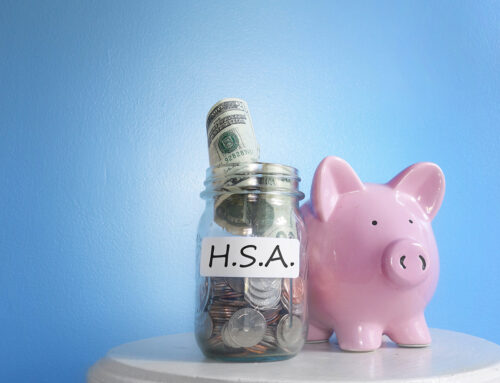If a fire, water main break or other disaster shut down your business, how would you recover? Would you be able to pay your rent and other obligations? What would happen to your employees?
Don’t let disasters derail your business. The best ways to disaster-proof your business are with adequate insurance and proactive planning and fortunately, there are many resources available to help you get your business back on track after an unexpected closure or other unfortunate event.
According to the Institute of Business Home and Safety, 25% of businesses never reopen following a disaster or interruption.
Having an emergency plan and adequate insurance coverage can mean the difference between reopening or shuttering your doors for good. For example, did you know that you can be compensated for expenses and loss of income if your business is closed for extended periods due to a disaster?
Here are four factors to consider in disaster planning and recovery for your business:
1. Annually Review Your Business Insurance Coverage
Review your insurance coverage every year to ensure it still meets your needs. You should also:
- Know what is covered and how much before a disaster strikes
- Maintain an inventory and equipment list
- Have complete copies of your business or commercial policy on-hand
Tip: Insure your property at replacement value
According to Farmers Insurance agent Ben Frihauf, you should have building and business personal property insured for replacement value to avoid a claim being paid on an actual cash value (depreciated value). This information is usually found in the settlement clause of your policy. For example: 25-year-old tables and chairs may be determined to be at the end of their lifespan at the time of loss so that no reimbursement will be made. If properly insured, the tables and chairs will be reimbursed at the full cost to purchase new items.
Frihauf cautions that underinsuring property may save money until there is a loss. At the time of settlement, if the property is underinsured, the claim will incur a co-insurance penalty and you may not get a full payout. Make sure you understand your policy’s co-insurance clauses and requirements so you are not underinsured.
A note about flood insurance…
Unfortunately, flood damage caused by natural disasters is not covered by general liability or property insurance policies. Through the National Flood Insurance Program (NFIP), all businesses are eligible for flood insurance to a maximum of $500,000 for the building property and usually up to $500,000 for business property. Visit FloodSmart.gov to learn more about flood insurance. Also, there are private insurance carriers who offer flood coverage. Contact your agent to learn more about those options.
2. Add Business Interruption Coverage to Your Plan
While Federal Emergency Management Assistance (FEMA) and other funds may help with recovery costs, many are in the form of low-interest loans that require repayment. Business interruption insurance helps pave the way for reopening in the event of a natural disaster, equipment failure, or vandalism.
Consider business income coverage with extra expense to cover payroll, monthly obligations, and relocation expenses. The premiums are generally inexpensive relative to overall premiums, and well worth the cost, says Mary Frazer from Insurance of the San Juans, especially when you consider the expenses related to a closure. For example, finding and training new employees is often more expensive than keeping them.
Frihauf adds that any well written policy will have at least 6 months of loss of business income. However, he recommends getting covered for 12-18 months as it may take well over a year to be back in business.
3. Conduct a Business Impact Analysis
It’s a tedious task, but conducting a business impact analysis (BIA) will help you assess the potential operational and financial effects of a business disruption. With this information, you can then determine short- and long-term recovery plans.
A BIA outlines key business functions and how a disruption may impact personnel, sales, customers, contractual obligations, and business plans. It also includes a “recovery time objective” to set a time limit for when the business function needs to be reinstated in order to mitigate irreversible damage.
Other factors to consider in your business impact analysis include:
- Market reach: After a disaster, the market will take time to reestablish. Consider what alternatives exists for your services and/or products. Can you reach out to new markets unaffected by the disaster?
- Financial position: This is vital to any critical decision-making after a disaster: How much money do you need to make your business operational?
- Your network: Have a firm grasp on how a disaster will impact those connected to your business. Many suppliers and vendors will offer support or alternatives for you to consider such as shipping directly to your customer or offering payment schedules.
Business Impact Analysis Worksheet
Pull together your business files, put on a pot of coffee, and fill in the tables of this business impact analysis form from our friends at Insurance of the San Juans. Download the Business Impact Analysis Worksheet (Word file).
4. Create Business Continuity and Disaster Recovery Plans
After you recover from conducting your business impact analysis, use that information to develop business continuity and/or disaster recovery plans. This is your go-to guide when the unexpected occurs. While this involves more paperwork and contemplation, establishing an emergency response/action plan for your business will put you in better position to rebuild. (And when you’re knee-deep in dealing with an emergency, having this information handy is a lifeline to getting back on your feet.)
In addition to assessing risks and analyzing impacts, your plan should include communication processes and policies, mitigation steps, and other pertinent information to keep you and your employees prepared. Be sure to also address key areas such as power, technology and data recovery, space, and connectivity.
Colorado SBDC Disaster Recovery and Continuity Guide for Small Businesses
The Colorado SBDC Disaster Recovery and Continuity Guide for Small Businesses is a comprehensive emergency response resource.
FEMA also offers great tips and guidelines for creating an information technology disaster recovery plan.
Disaster Resources for Small Businesses
Many businesses impacted by a natural disaster may be eligible for tax breaks to offset losses. Your local chamber of commerce, regional small business administration center, and community foundations are also great sources for assistance.
Here’s a list of resources that can help your business recover from natural disaster-related closures.
National Disaster Resources for Businesses
- Preparedness Planning for Your Business: ready.gov/business
- Business Continuity Resources: ready.gov/business/continuity
- Disaster Unemployment Assistance: workforcesecurity.doleta.gov
- FEMA National Flood Insurance Program: floodsmart.gov
- IRS Disaster Resource Guide: www.irs.gov/pub.pdf
- IRS Disaster Assistance Hotline: 866-562-5227
- SBA Disaster Assistance Customer Service Center: 800-659-2955
Colorado Disaster Resources for Businesses
- Colorado SBDC Disaster Relief Program: www.coloradosbdc.org/disaster-relief
- Colorado SBDC Disaster Recover and Continuity Guide: coloradosbdc.org/CSBDC-Business-Recovery-Guide.pdf
- Colorado United Resiliency & Recovery Office: coloradounited.com



